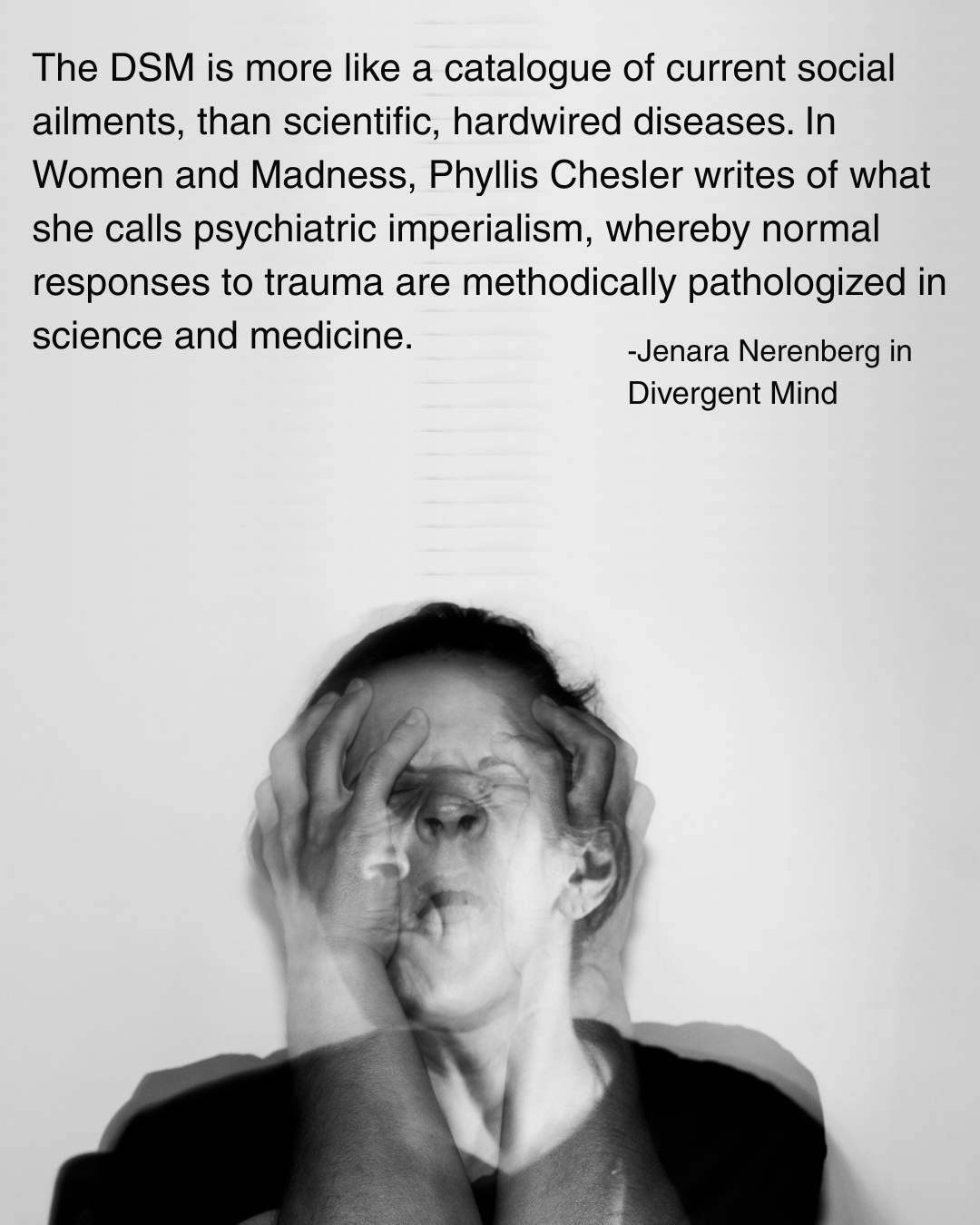Divergent Minds

In Divergent Mind by Jenara Nerenberg writes, “The DSM is more like a catalogue of current social ailments, than scientific, hardwired diseases. In Women and Madness, Phyllis Chesler writes of what she calls psychiatric imperialism, whereby normal responses to trauma are methodically pathologized in science and medicine.”
I think this is such an important point to make. Our current culture pathologizes many things, neurodiversity, gender diversity, disability and mental health struggles. May of the reasons people with these issues suffer is due to this pathologization, discrimination and lack of accommodation.
As a clinical psychologist I have very mixed feelings about the DSM. I think it is important that we have a common language to talk about people’s struggles but also know that putting them into the DSM suggests that they are solely the product of the individual, which is not true.
And as a psychologist who bills insurance, I have to utilize these diagnostic codes to get paid so that I can help make psychological services available to those who cannot afford to pay out of pocket for care.
I understand that there are oppressive systems at place that affect what is considered a diagnosable condition, who gets diagnosed and what services they can access with such a diagnosis are also influenced by these systems.
And I often hear grumbling in certain spaces about how “everything is trauma now” and I believe that this is actually true, because we are finally starting to acknowledge all the ways that trauma shows up in people’s lives. I also believe that many of the diagnoses in the DSM have roots in traumatic experiences and roots in the traumatizing way these events are handled in our culture.










